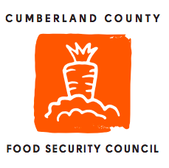Feeding the 5000 Portland, Maine – A COALITION CONTINUES...
BUILDING COMMUNITY TOWARD A MORE RESOURCEFUL AND EQUITABLE FOOD CULTURE.
On Friday, October 7, 2016, Monument Square was filled with crowds eager for a meaningful midday meal. Feeding the 5000 Portland, Maine featured a free bowl of nutrient-dense vegetable stew made from locally grown gleaned and donated produce, cooking demos by prominent local chefs, and educational activities involving creative food rescue. In the square, gelato and smoothies made from gleaned produce drew raves from the crowd, along with the vegetable stew which, in the words of numerous attendees, was “really, really good!”
A diverse coalition of local, regional and statewide nonprofits, led by the Cumberland County Food Security Council, Healthy Acadia, and the Natural Resources Council of Maine, met for a year to plan the event, contributing staff time and other resources. Feedback, the Rockefeller Foundation, and Town and Country Credit Union provided additional financial support. Community partners included farms, artist groups, universities, schools, restaurants, retail stores, the city council, state and regional agencies, and food security and public health organizations.
HOW DO WE MEASURE SUCCESS?
Resourcefulness. In the days leading up to the event, 50 volunteers collected 4174 pounds of gleaned and donated produce that would otherwise have gone uneaten. They didn’t have to go far to find farmers with available crops—95 percent of the produce was grown within 45 miles of Portland. Another 100 volunteers created a recipe, washed and chopped vegetables, and prepared the stew, redistributing surplus and recycling scraps for Zero Waste.
Education and awareness. More than 250 volunteers gained experience in gleaning, preparing, and serving food. Speakers and exhibitors inspired adults and children to think differently about food, raising awareness of how their choices can make a difference and save money, and encouraging resourceful behaviors, such as choosing imperfect fruits, or using lesser-known parts of vegetables. The overall message: We can all help to reduce food waste!
Innovation. For their contributions, participating farms became eligible for a total of $7000 in tax deductions. The farms also joined the Maine Gleaning Network, a statewide effort to rescue food for distribution to pantries and soup kitchens. One restaurant partner created squash almond gelato to serve at the event, made from gleaned squash. The event precipitated two other enhancements to the local food system: a discussion on supply chain sharing for value-add processing of surplus food and adoption of a statewide surplus food-sourcing platform.
BUILDING COMMUNITY TOWARD A MORE RESOURCEFUL AND EQUITABLE FOOD CULTURE.
On Friday, October 7, 2016, Monument Square was filled with crowds eager for a meaningful midday meal. Feeding the 5000 Portland, Maine featured a free bowl of nutrient-dense vegetable stew made from locally grown gleaned and donated produce, cooking demos by prominent local chefs, and educational activities involving creative food rescue. In the square, gelato and smoothies made from gleaned produce drew raves from the crowd, along with the vegetable stew which, in the words of numerous attendees, was “really, really good!”
A diverse coalition of local, regional and statewide nonprofits, led by the Cumberland County Food Security Council, Healthy Acadia, and the Natural Resources Council of Maine, met for a year to plan the event, contributing staff time and other resources. Feedback, the Rockefeller Foundation, and Town and Country Credit Union provided additional financial support. Community partners included farms, artist groups, universities, schools, restaurants, retail stores, the city council, state and regional agencies, and food security and public health organizations.
HOW DO WE MEASURE SUCCESS?
Resourcefulness. In the days leading up to the event, 50 volunteers collected 4174 pounds of gleaned and donated produce that would otherwise have gone uneaten. They didn’t have to go far to find farmers with available crops—95 percent of the produce was grown within 45 miles of Portland. Another 100 volunteers created a recipe, washed and chopped vegetables, and prepared the stew, redistributing surplus and recycling scraps for Zero Waste.
Education and awareness. More than 250 volunteers gained experience in gleaning, preparing, and serving food. Speakers and exhibitors inspired adults and children to think differently about food, raising awareness of how their choices can make a difference and save money, and encouraging resourceful behaviors, such as choosing imperfect fruits, or using lesser-known parts of vegetables. The overall message: We can all help to reduce food waste!
Innovation. For their contributions, participating farms became eligible for a total of $7000 in tax deductions. The farms also joined the Maine Gleaning Network, a statewide effort to rescue food for distribution to pantries and soup kitchens. One restaurant partner created squash almond gelato to serve at the event, made from gleaned squash. The event precipitated two other enhancements to the local food system: a discussion on supply chain sharing for value-add processing of surplus food and adoption of a statewide surplus food-sourcing platform.

